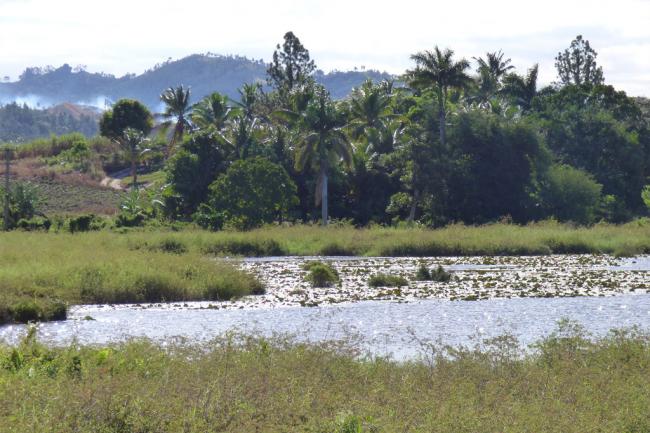
WHO scales up coordination for effects of El Niño expected worldwide
“The El Niño phenomenon is a major concern to global public health as it has the potential to exacerbate health risks associated with extreme weather in different parts of the world,” stated a WHO status report issued recently on Health Preparedness for El Niño Event 2015-2016.
According to a map produced by Columbia University, and included in the update, the trend of unusual wet and dry condition for November 2015 to January 2016 will continue.
“WHO is acutely aware of the high risk conditions of 2015 and providing support to WHO Member States and partners to enhance preparedness measures for the current El Niño event,” said the report.
It also noted that those El Niño-related health impacts depend on local health vulnerabilities, preparedness and response capacities, in addition to the local climate situation.
El Niño, indicated the report, offers an opportunity to strengthen all-hazards preparedness of communities and countries, and the readiness of WHO, its regional and global offices and partners for health emergencies.
At international level, WHO is assisting countries to build health system resilience and improve emergency risk management as well as raising awareness on the issue.
As far as regional concerns, WHO field offices, which are also in charge of UN interagency coordination, are guiding Ministries of Health on risk management and contingency plans. Some WHO regional offices have also shared best practices by member States for better preparedness.
The report further provided guidance to the health sector on working with local partners to monitor and reduce health risks, developing strategies to prepare and response to emergency, planning strategic communications on the climate hazard, and evaluating the measures to tackle El Niño.
Extensive floods and droughts caused by El Niño have brought significant health impacts around the globe, the report details.
For example, extreme rainfall has not only made Eastern Africa and Horn of Africa food insecure with huge economic reduction in agriculture, but it has also triggered water-borne and vector-borne diseases such as cholera and Rift Valley Fever.
In South America, the unusual intense rainfall has caused flooding and landslide, widely destroying homes and infrastructure.
Drought, the other impact of El Niño, has led to water shortages in the Pacific Islands, which worsened food harvests and economies and increased morbidity and mortality caused by malnutrition diseases.
Population displacement and psychosocial problems are among other common impacts attributed to El Niño.
Photo: OCHA/Danielle Parry/www.justearthnews.com
Support Our Journalism
We cannot do without you.. your contribution supports unbiased journalism
IBNS is not driven by any ism- not wokeism, not racism, not skewed secularism, not hyper right-wing or left liberal ideals, nor by any hardline religious beliefs or hyper nationalism. We want to serve you good old objective news, as they are. We do not judge or preach. We let people decide for themselves. We only try to present factual and well-sourced news.







